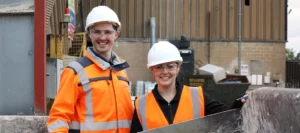Wastewater-heated greenhouses could ‘change the face’ of UK sustainable food production
Wastewater-heated greenhouses under construction in East Anglia could ‘change the face’ of sustainable food production in the UK.
Buoyed by the UK’s commitment to achieving net-zero emissions by 2050 and the impending release of the government’s clean heat strategy, the company Low Carbon Farming has identified potential sites for 41 giant, low carbon greenhouses.
Collectively, the sites could create over 8000 new jobs, invest £2.67bn into regional economies and increase the UK’s clean heat output by almost 3 TWh per annum.
The plan could see the UK become self-sufficient in tomatoes and cucumbers while removing the food miles associated with importing such produce.
In practice, growing capacity is likely to be allocated to a wider range of produce, including peppers and flowers.
The company will use heat pumps to capture waste heat from nearby water recycling centres and the projects displace traditional gas-fired greenhouse heating methods, which will increase significantly the production of low carbon, British produce.
Andy Allen, a director at Low Carbon Farming, said: ‘Our East Anglian projects provide British farming with a bankable template for the nationwide roll-out of transformative, renewable heat solutions.
‘Having secured the financing and proven the business model, and with the case for secure and sustainable British produce having been thrown into such sharp focus, it’s time to plan for the next stage.
‘Policy decisions made the innovation behind our first projects possible – specifically, the entirely logical extension of the Tariff Guarantee until the end of the Renewable Heat Incentive in 2021. We now look to government for a clear and far-sighted decision to extend revenue support for renewable heating in British farming far beyond 2021.’
Anglian Water is working with Low Carbon Farming on the first projects to supply the waste heat and in doing so solve the environmental challenges associated with heating local water courses.
David Riley, head of carbon neutrality at Anglian Water: ‘These projects are helping us fulfil our environmental obligations and represent the kind of innovative approach to sustainability we are embracing right across our business in our own challenge to become zero carbon by 2030.
‘Finding alternative sustainable uses for land close to water recycling centres which also make use of excess energy makes sense for UK businesses.’















